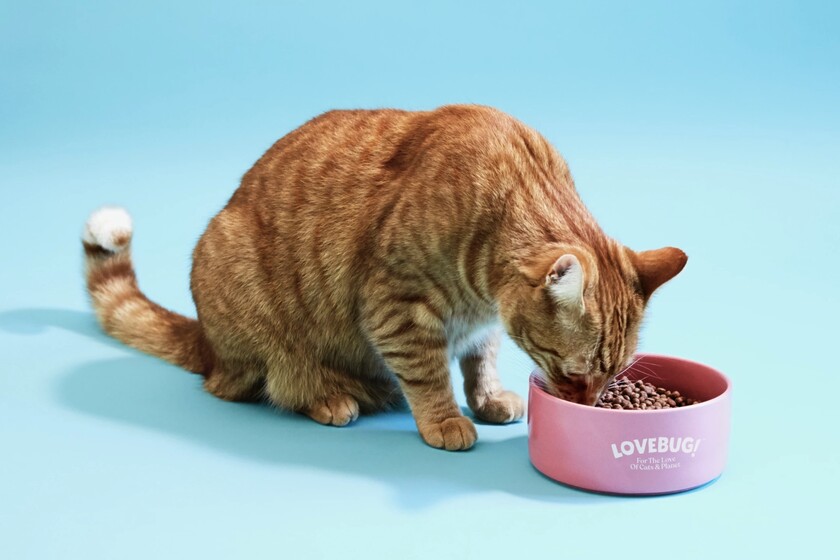It is no secret that livestock (and consequently meat consumption) is one of the sectors that has the greatest impact on the environment. Synthetic meats and insects are the big two alternatives, also for pets.
The idea of eating insects for protein Instead of making it from meats, it is not an entirely new idea. In fact, it has been gradually implemented in the West for a few years with the arrival of insect snacks and approvals by regulators. Now, there is a significant culture shock to overcome, so it may still be many years before insects are the basis of our diet.

There is not this shock or repulsion on the part of pets, who will care little if the feed they consume is made of meat or insects. Lovebug, a UK-based company, has seen a business opportunity here. You are about to launch a cat food product that uses insects as a protein source instead of cattle.

They say it is nutritionally complete and that it is more sustainable to produce than meat-based alternatives. Although the cat probably does not care, the one who can notice it is its owner. Each one kilogram bag will cost around 15 euros.
Fighting climate change with fake burgers and insect snacks
One of the main problems posed by the high consumption of meat by society is the huge consumption of resources needed to produce meat in question. The energy and resources used to produce one kilogram of meat can be used to produce tens of kilograms of plant-based food. Hence it is considered unsustainable.
The most fashionable alternative lately are laboratory meats, which are based on plants and offer a similar texture and taste. In fact, it is increasingly common to see them in fast food chains or supermarkets. Of course, that they are plant-based does not mean that they are healthier as well.

On the other hand we have insect farming, which do not require as much water and food as livestock and not as much space. An insect farm takes up much less space than a traditional farm and similar results (in terms of protein to consume) can be achieved. The problem? The West’s refusal to consume insects.
Via | New Atlas
